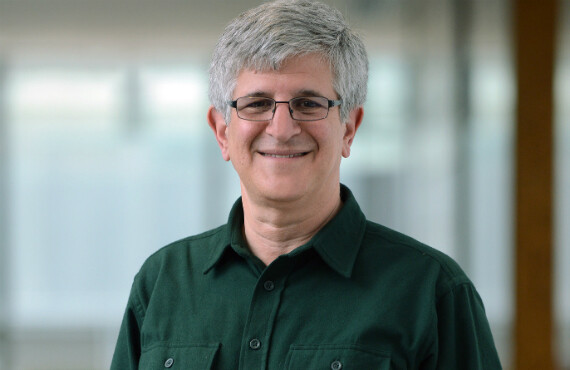Penn Open Learning to Offer Updated Vaccine Course
By Julie McWilliams
Vaccines have been a hot media topic in recent months, particularly with measles making a comeback across the United States. As it is covered in social media, misinformation and innuendo proliferate widely, and parents and policymakers, educational institutions and health-care professionals all have a stake in learning and disseminating facts about this topic.
Those who want to get the most up-to-date information on vaccines from one of the world’s leading experts in the field can sign up for the free, newly updated open-learning course offered by the University of Pennsylvania through Penn’s Open Learning Initiative at https://www.coursera.org/course/vaccines.
Beginning April 13, Paul Offit, professor of vaccinology and of pediatrics at Penn’s Perelman School of Medicine, will present a new version of the Penn vaccine course he taught in the summer of 2012.
“It was very well received,” says Deirdre Woods, executive director of Penn’s Open Learning Initiative, “so, given the current discussion about vaccines and infectious diseases, we decided to reoffer and update the course.”
As in the past, this course addresses the history, science, benefits and risks, both real and perceived, associated with vaccines as well as vaccine safety, recommended schedules and common questions.
Those taking the course also will have the opportunity to learn about vaccine development during the past 250 years and how vaccines have reduced the outbreaks and virulence of various viruses and bacteria in the U.S. and around the world. The lectures will also touch on the ways media shape the conversation and the controversy that has emerged over some vaccines, religious exemptions and other reasons for exclusion.
Offit, who is also a physician in the Division of Infectious Diseases and director of the Vaccine Education Center at The Children’s Hospital of Philadelphia, says he will add a new lecture that will include discussion of two new recommended vaccines: a one to prevent a particular strain of bacterial meningitis and an expanded version of another to prevent the human papilloma virus, which has been the topic of much media coverage.
“The human papilloma virus can be cancer-causing, particularly head and neck and anal and genital cancers,” Offit says. “It’s the best tested vaccine post-licensure of any in history and now it’s been expanded to include more strains.”
“I’ll also discuss the measles that emanated from Disneyland,” he says.
Woods added that the course has been reduced to a six-week session from the original 10 and, for participants to get the most out of the experience, it requires about two to three hours of work each week.
Students who complete course requirements will earn a Statement of Accomplishment, or for a fee can sign up for a Verified Certificate. Additional information about Penn’s Open Learning Initiative is available at http://openlearning.upenn.edu.








